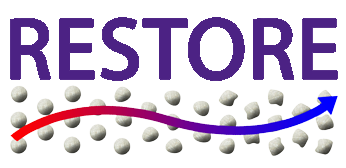The Gates Foundation Reinvent the Toilet Challenge
The Problem
Access to adequate water, sanitation, and hygiene remains a critical challenge for much of the developing world. In fact, 4.1 billion people – six out of every 10 people on the planet – do not use toilet facilities that provide any treatment of the waste before it is returned to the environment. The majority of pit latrines, the most common form of basic sanitation in developing countries, have no adequate system for treating the waste they collect. These latrines may eventually release pathogens to the environment (after they overflow and are abandoned, during flooding in monsoon season, etc.). Thus, open defecation and untreated pit latrines represent a significant pathway for pathogens to enter surface water and groundwater, leading to disease, disability, and death.
The Challenge
The Bill and Melinda Gates Foundation is leading a particularly ambitious initiative to address this. The Reinvent the Toilet Challenge aims to develop a transformative technological solution to human waste. They are funding research teams to develop a household toilet that requires no water infrastructure, no sewage pipes, no connection to electricity, and disinfects the waste within 24 hours, while at the same time costing less than 5 cents per person per day (More information here).
The goal is to develop and deploy innovative and affordable technologies that can make a step change improvement in sanitation in the developing world. The program launched in 2011 and in August 2012 the 8 research teams that received first-round funding were invited to the Reinvent the Toilet Fair at the Gates Foundation Headquarters in Seattle. Each team had to present live demonstrations of their proof-of-concept research, with three teams awarded prizes for developing the most promising approaches to a reinvented toilet.

Bill Gates inspecting the Western/Queensland design during the scientific demonstration at the Gates Toilet Fair in Seattle in August 2012
Western's Team Design
One of the winning teams is a partnership between University of Toronto (Profs. Cheng and Kortschot, Chemical Engineering), Western University (Prof. Gerhard, Environmental Engineering), and University of Queensland (Prof. Torero, Combustion Engineering). Their toilet concept focuses on treating the liquid (urine and wash water) via low-energy ultra-violet light using only a fraction of the energy obtained from a solar panel. Meanwhile, the faeces is destroyed using its own embedded energy. Self-sustaining smouldering, the process observed in a charcoal barbeque, is here employed to convert the faeces into heat and water vapour with minimal input of external energy. The smouldering reactor is an adaptation of a new soil remediation technology being further developed at Western. This technology, known as STAR (Self-sustaining Treatment for Active Remediation), has been demonstrated to destroy toxic industrial pollutants in soil in a similar cost effective and energy efficient manner (SiREM). A video explaining this new toilet concept is above and an article in Popular Science magazine presenting a prototype sketch of the toilet and accompanying explanation is available here.

An illustrative sketch of the Western/Toronto/Queensland reinvented toilet design. Shown is the liquid/solid separation system, the liquid sterilization system, and the faeces destruction system using STAR (smouldering) approach. Sketch courtesy of Trevor Johnston, published in Popular Science (March 21, 2013)
The Next Step
The second phase of the Reinvent the Toilet Challenge is currently seeing the teams developing full scale prototypes, turning their scientific concepts in working toilets. The Gates Foundation is seeking rapid results, with a full prototype expected in approximately 12 to 14 months. These will be showcased in a second Toilet Fair in early 2014. The Gates Foundation, which hands out around $3 billion each year across all aspects of philanthropy, is ramping up its investment on sanitation from $6.5m to $80m a year. This money - invested not only in research but also building demand for sanitation, as well as advocacy and monitoring programs - is an investment that the World Health Organization estimates will produce a return of 900% in the form of social and economic benefits from improved sanitation, particularly from increased productivity and reduced health care costs.




